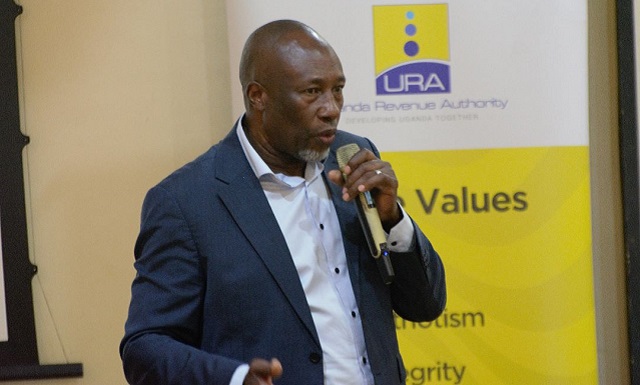
Experts want the government to offer incentives to bolster the sector’s growth
Kampala, Uganda | JULIUS BUSINGE | Private sector players have called on the government to offer incentives to players in the mining sector to bolster its growth and create opportunities.
Frank Mugyenyi, Founder of Global Minerals Africa Development Institution said during a mining tax dialogue organized by the Uganda Chamber of Mines and Petroleum and USAID-Domestic Revenue Mobilisation for Development Activity (USAID-DRM4D) on Aug.10, establishing common guidelines for mineral taxation, including tax rates, deductions, and exemptions to promote consistency and reduce barriers to cross-border investments and trade is urgently needed to support the growth of the sector regionally.
“Regional integration requires coordination and harmonization of tax policies among participating countries,” he said.
Mugyenyi said the mineral tax regime should include incentives that encourage value-addition activities within the region through tax breaks, subsidies, or reduced tax rates for companies that engage in downstream processing, manufacturing, and other value-added activities.
“Such incentives will attract investments, promote industrialization, and increase the regional value created within the mineral value chains,” he said.
Mugyenyi also said, facilitating the movement of minerals and mineral products across borders is crucial for regional integration and that the mineral tax regime should align with trade agreements and customs frameworks to eliminate or reduce trade barriers such as import duties, export restrictions, and non-tariff barriers.
This, he said, will encourage the smooth flow of minerals and foster regional collaboration.
Currently, in Uganda, an investor in the mining sector has to pay Shs100, 000 for a mining lease per hectare or part of a hectare as mineral rent annually, fees for a retention license amounting to Shs100,000 per km2 or part of a square KM as mineral rent annually, fees for an exploration license of Shs50,000 per km2 or part of a square KM as mineral rent annually.
Other fees include a royalty of 5% on gross sales net of smelting and refining costs, and corporate income tax of 30%. The other taxes include dividend withholding tax – equivalent to 15% for non-residents, interest withholding tax of 15% for non-residents, import duty of 0% for capital goods, and 10% for intermediate goods. The law also provides for an export levy of 5% for processed gold.
The Independent understands that Uganda Revenue Authority collected approx. Shs80bn from the extractives sector (oil and gas and mining) in FY2020/2021, Shs170bn in FY 2021/2022 and Shs430bn in the FY 2022/2023. Approx.90% of these collections come from the oil and gas sector compared to 10% contribution from the mining sector.
Participants said these tax rates and related fees are many and high and need to be reduced to boost the growth of the sector.
They also suggested that the government put in place digital communication tools to facilitate easy access to information which would translate into easing the cost of doing business.
They also called for the need to boost investment in capacity building and knowledge of Uganda Revenue Authority staff to be able to understand the sector and offer the required service, development, and maintenance of a national database of miners and product minerals.
Uganda’s National Development Plan (NDPIII) running from 2020/21–2024/25 has prioritized the development of five categories of minerals namely; Iron ore, Gold, Copper, Phosphates, and Development Minerals (marble, silica sand, aggregate, and limestone) given the advancement of efforts to ascertain their commercial viability and data availability on the same.
Government officials have since said studies will continue to fully quantify all the other minerals whose occurrences are known. It has allocated Shs54.3 billion in the current financial year budget up from Shs49bn last year to help in quantifying the country’s mineral deposits to ascertain their value before beneficiation.
The government has also promised to operationalise the 2022 minerals act to regulate artisanal and small-scale miners.
The new law is intended to provide a robust, predictable, and transparent legal regime, improve mining and mineral administration and business processes, ensure efficient collection and management of mineral revenues, promote value addition to minerals, and increase mineral trade.
Uganda has also in recent years, registered tremendous progress in attracting investments into the exploration of green energy minerals that include rare earth elements, graphite, copper, cobalt, manganese, lithium, and nickel a move that sector players have supported.
 The Independent Uganda: You get the Truth we Pay the Price
The Independent Uganda: You get the Truth we Pay the Price





